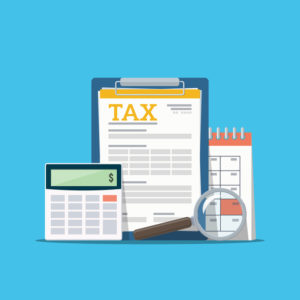If you are considering filing for Chapter 7 bankruptcy and you owe back income taxes then it is likely you will consider if your income tax debt can be included. The answer is more complicated than a simple yes or no. The best way to get an answer about your specific case is to contact a bankruptcy attorney for a free legal consultation. In the meantime, feel free to read on and get more information about the options.
Income taxes are generally not dischargeable but they can be
In most cases, you cannot include income taxes in a Chapter 7 bankruptcy – but there are exceptions. In fact, there are five standards you must meet. If you meet all five of the five following requirements then you may be able to include your income tax in your bankruptcy. Either way, contact The Law Offices of Paul Y. Lee at 951-755-1000 to find out what your options are.
1. The debt must be federal income tax debt
The only type of tax debt that can be discharged in a Chapter 7 bankruptcy is federal income tax debt. If you owe payroll taxes they cannot be included in your bankruptcy. If you owe state income tax then it cannot be included in your bankruptcy. Only federal income tax can potentially be discharged.
2. The debt must be at least three years old
If you have fresh federal income tax from the last few years then you are out of luck. Bankruptcy law requires that federal income tax debt be at least three years in order to be discharged.
3. The debt must meet the 240-day requirement
Not only must your federal income tax have been due at last three years before you file for bankruptcy, but there is another time-sensitive requirement: The 240-rule. It requires that the IRS assessed the debt at least 240 days before the day you filed for bankruptcy. That is around eight months.
4. You have filed your federal income tax return
Not only must you have filed a federal income tax return for the taxes you want to discharge, but you must have done so at least two years prior to the date you want to file for bankruptcy. This can be complicated if you filed your taxes late. This is why we urge you to talk to an attorney before trying to file for bankruptcy on your own.
5. You cannot have committed fraud
The final requirement is that you cannot have committed tax evasion or any other type of tax fraud. For example, if you kept money in an offshore bank account and the IRS discovered it, and that is why you are now paying that back tax, then the judge is not going to allow that tax debt to be discharged.
Do you meet the above five requirements? If so, reach out to The Law Offices of Paul Y. Lee at 951-755-1000 and let us help you discover if bankruptcy is the right choice for your needs.


